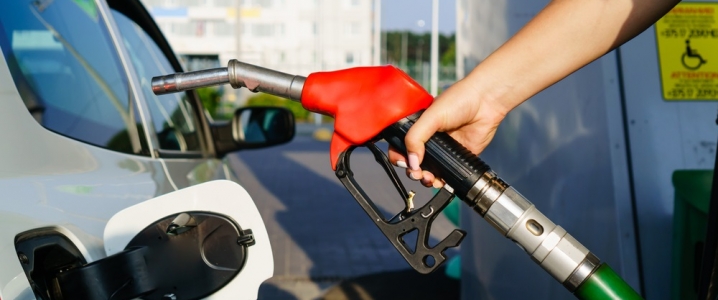The Trump administration is taking the aggressive move of not only trying to freeze fuel economy standards for the nation’s cars and light duty trucks, but it is also attempting to neuter California’s unique authority to set its own standards. However, California plans on fighting back.
California’s ability to set its own fuel economy standards dates back decades, an authority granted to the state because of horrific smog that suffocated parts of the state in the 1960s and 1970s.
Because of the Trump administration’s attempt to weaken fuel economy standards – by freezing them in 2020 at 37 miles per gallon, instead of allowing them to ratchet up to over 50 mpg by 2025 – California is about to move to decouple its regulations from that of the federal government. A dozen other states that follow California’s lead would likely follow suit. By attempting to go it alone, forging forward with ever-tighter fuel efficiency requirements, California hopes to drag the auto industry along with it despite the Trump administration.
“In case someone might think that the change in federal standards would make it easier to comply in California, it was very important for us to make clear that this is not the case,” Mary Nichols, head of California’s Air Resources Board, told Bloomberg.
Nichols said that even if the Trump administration is successful at gutting California’s authority, the state could use other means to get what it wants, including limiting vehicle registrations, fees and other taxes to continue to induce cuts in greenhouse gas emissions.
The Trump administration is not looking for compromise and is moving to strip the state of its authority to set its own standards. The looser fuel standards could increase U.S. oil demand by 500,000 bpd by 2029.
However, there are a series of state level policies that could help California and other parts of the country to continue to push forward in spite of the Trump administration’s efforts. The Energy Realpolitik blog at the Council on Foreign Relations (CFR) suggests a “feebate” program that puts a tax on gas guzzling cars and SUVs, with the proceeds used as a rebate for the purchase of electric vehicles. This would be “immune to federal interference.”
Also, large corporations could drive EV adoption through their fleets, just as large corporations have accelerated the adoption of renewable energy, CFR argues. Companies like UPS and FedEx are conducting large-scale tests of EVs in their fleets, which makes sense giving the amount of miles their vehicles log on a daily basis. Related: Pakistan: Exxon Is Close To Making A Mega Oil Discovery
These companies could put pressure on state governments to provide incentives for EV infrastructure, preferential lane access and the like. Municipalities across the country could adopt similar measures where applicable. Electric buses offer a ton of low hanging fruit, saving cities on the expense of fuel while also cleaning up the air. Taken together, municipal and state level policies can avoid backsliding on fuel efficiency even as the federal government tries to water down requirements on automakers.
Meanwhile, international markets are not going to simply follow the whims of the Trump administration. China is aggressively pushing forward with EV adoption, hoping to phase out the sale of vehicles using the internal combustion engine. A growing number of governments in Europe have also set deadlines to ban the sale of gas and diesel-powered vehicles.
In that sense, the automakers themselves might not find it all that advantageous to bet on Trump’s retrograde energy policy. If the Big Three automakers put all of their chips on gas guzzling vehicles, they will be burned by international competitors as the times pass them by. It would be insane for Detroit to think that the battle over fuel efficiency will end here, with the Trump administration freezing time by gutting fuel efficiency requirements. A future administration could simply tighten fuel economy standards all over again. Related: Crackdown Looms As Maduro Survives Assassination Attempt
Moreover, as CFR notes, over time it is going to be increasingly costly for major auto companies to maintain two production lines, one for inefficient gas guzzlers and one for more efficient cars and/or EVs. Even if the Trump administration can prevent a patchwork of policies at the state level by taking away California’s regulatory authority, the auto market in the rest of the world will continue its transition towards electrification. American automakers will lose global market share if they pursue the scorched-earth strategy of the Trump administration.
As big car companies make long-term investments, they would be wise to take a long-term view. That is, just about everyone agrees that the internal combustion engine will eventually go the way of the coal plant – increasingly obsolete both in terms of environmental policy, but more importantly, increasingly uncompetitive with alternatives.
ADVERTISEMENT
How fast the energy transition occurs does indeed depend quite a bit on government policy, but there is a lot that states and municipalities can do. And for automakers, they may feel like they were given a gift with the deregulatory bonanza underway in Washington, but the energy transition continues, and there are a lot of risks in not getting ahead of the curve.
By Nick Cunningham of Oilprice.com
More Top Reads From Oilprice.com:
- Pakistan: Exxon Is Close To Making A Mega Oil Discovery
- Something Strange Is Happening In The Saudi Oil Patch
- A New Material That Could Create Super Batteries

















